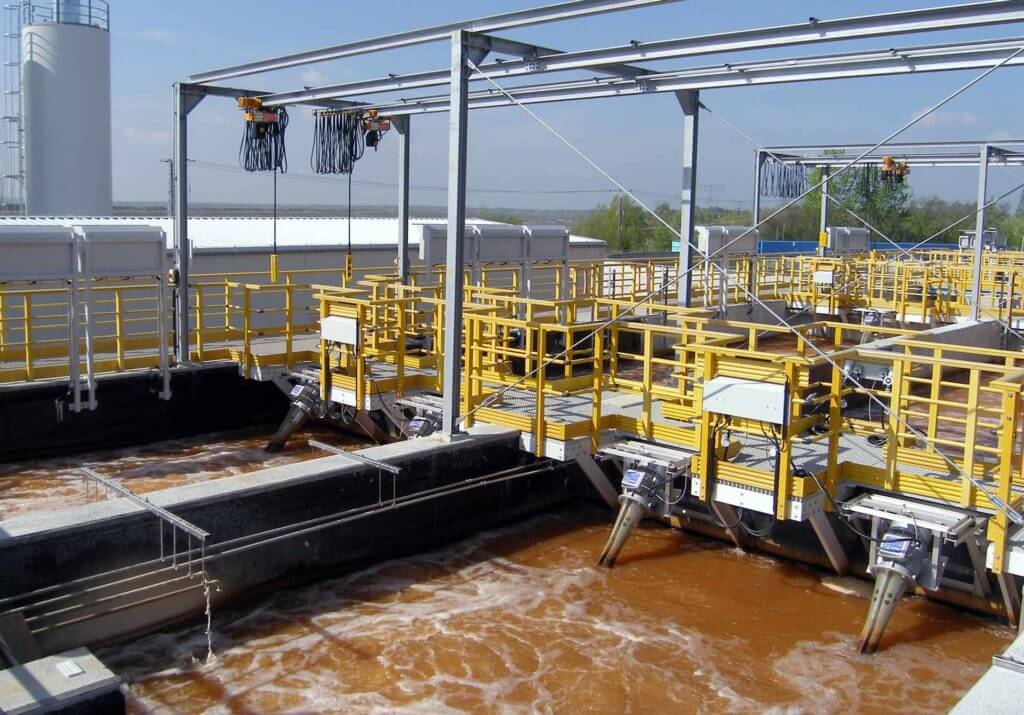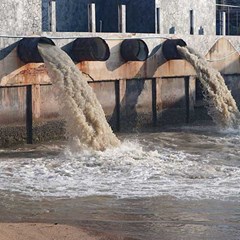Industrial Waste Water Treatment-- Comprehensive Systems for Wastewater Disposal
Industrial Waste Water Treatment-- Comprehensive Systems for Wastewater Disposal
Blog Article
Developments and Advances in Hazardous Waste Water Treatment Technologies
The landscape of commercial wastewater treatment is going through a transformative change, driven by innovations that enhance both effectiveness and sustainability. As governing criteria evolve, the integration of AI and equipment discovering right into wastewater monitoring systems assures to simplify procedures and make certain conformity.
Introduction of Waste Water Treatment Technologies
Wastewater treatment technologies encompass a series of approaches created to eliminate pollutants from industrial effluents before their release right into the setting. These modern technologies are crucial for maintaining environmental balance and making certain conformity with environmental policies. The primary groups of wastewater therapy include physical, chemical, and biological methods, each offering distinctive functions based on the nature of the contaminants existing.

Organic treatment methods use bacteria to weaken organic matter, making them especially reliable for organic-rich effluents. Strategies like activated sludge and biofilm activators harness the all-natural degradation capabilities of germs, bring about significant reductions in biochemical oxygen demand (BODY)
Advanced Filtering Strategies
Advanced filtration techniques represent an important development in the world of commercial wastewater therapy, improving the performance of contaminant removal processes. Industrial Waste Water Treatment. These methods include a variety of technologies, including microfiltration, ultrafiltration, nanofiltration, and reverse osmosis, which supply sequential barriers for different bit dimensions and chemical structures
Microfiltration and ultrafiltration use membrane layer systems to remove suspended solids, bacteria, and bigger natural particles, boosting the quality of effluent before additional treatment. Nanofiltration connects the space in between ultrafiltration and turn around osmosis, properly getting rid of divalent ions and natural substances, thus minimizing the tons on downstream procedures.
Reverse osmosis supplies the highest possible degree of filtration by enabling only water and small particles to travel through its semi-permeable membrane layers, making it excellent for redeeming high-grade water from commercial effluents. Current improvements in membrane innovation, including the growth of more resilient and fouling-resistant products, have significantly boosted functional efficiency and reduced expenses.
Incorporating these innovative filtering techniques not only enhances the overall therapy process but also adds to sustainability initiatives by allowing water reuse and resource recovery in commercial setups. (Industrial Waste Water Treatment)
Organic Treatment Technologies

Additionally, the advancement of engineered biological systems, such as membrane bioreactors (MBRs), incorporates organic treatment with advanced membrane filtering. This assimilation allows for higher effluent quality and minimized footprint, making it ideal for space-constrained industrial facilities. Technologies in genetically engineered microbes have also arised, boosting the biodegradation of certain contaminants, such as pharmaceuticals and heavy steels, that are commonly testing to eliminate.
Furthermore, the implementation of bioaugmentation strategies, where useful germs are presented to boost the existing organic therapy processes, has revealed promising results in enhancing therapy efficiency. These technologies collectively indicate a fad in the direction of more sustainable and reliable organic therapy approaches that can adjust to the these details evolving complexities of commercial wastewater streams. As sectors continue to prioritize ecological conformity, these biological developments will certainly play a crucial function in wastewater monitoring.

Resource Recovery Approaches
In commercial settings, the integration of source healing methods has click reference actually ended up being increasingly essential for improving sustainability and minimizing waste. These approaches focus on extracting beneficial materials and power from wastewater streams, consequently transforming potential toxins into multiple-use resources.
One noticeable method is vitamins and mineral healing, where nitrogen and phosphorus, often existing in excess in wastewater, are recorded and converted right into fertilizers. This not just decreases ecological impacts yet also gives a circular economic situation option for farming applications. Additionally, modern technologies such as anaerobic digestion permit for the conversion of organic waste right into biogas, a renewable power source that can balance out fossil gas use in industrial procedures.
Furthermore, progressed purification and membrane innovations promote the recovery of industrial spin-offs such as steels and salts. These recovered materials can be rehabilitated right into production processes, decreasing the demand for virgin sources.
Future Trends in Waste Water Management
As markets progressively focus on sustainability, the future of wastewater monitoring is established to undertake significant changes. Technical improvements, such as expert system and artificial intelligence, will enable much more effective monitoring and administration of wastewater systems. These innovations can anticipate maintenance requirements, enhance therapy procedures, and improve decision-making, inevitably minimizing functional expenses and ecological effect.
Furthermore, the combination of circular economy principles will certainly play a crucial role in wastewater monitoring. Industries are anticipated to move towards systems that not only treat wastewater yet additionally recuperate useful resources, such as nutrients, water, and energy. This transition will minimize waste and advertise the reuse of materials, aligning with international sustainability objectives.
Emerging treatment strategies, such as membrane bioreactors and advanced oxidation procedures, will even more boost the performance of wastewater treatment, permitting better effluents suitable for reuse. In addition, regulative frameworks are most likely to develop, emphasizing more stringent requirements for wastewater discharge and encouraging sectors to embrace innovative therapy discover here services.
Verdict
In verdict, the development of industrial wastewater treatment technologies demonstrates a substantial change towards improved effectiveness and sustainability (Industrial Waste Water Treatment). Advancements in advanced filtration methods, biological treatments, and source healing methods highlight the sector's commitment to environmental stewardship.
The landscape of industrial wastewater therapy is undertaking a transformative change, driven by technologies that enhance both efficiency and sustainability.Wastewater treatment technologies include a variety of techniques created to eliminate pollutants from commercial effluents prior to their release into the atmosphere.Taking advantage of the power of biological processes has led to significant developments in the treatment of industrial wastewater.Additionally, the implementation of bioaugmentation strategies, where useful microorganisms are introduced to enhance the existing organic therapy procedures, has shown promising outcomes in boosting therapy performance. These innovations jointly indicate a fad in the direction of more reliable and lasting biological therapy techniques that can adjust to the developing complexities of commercial wastewater streams.
Report this page